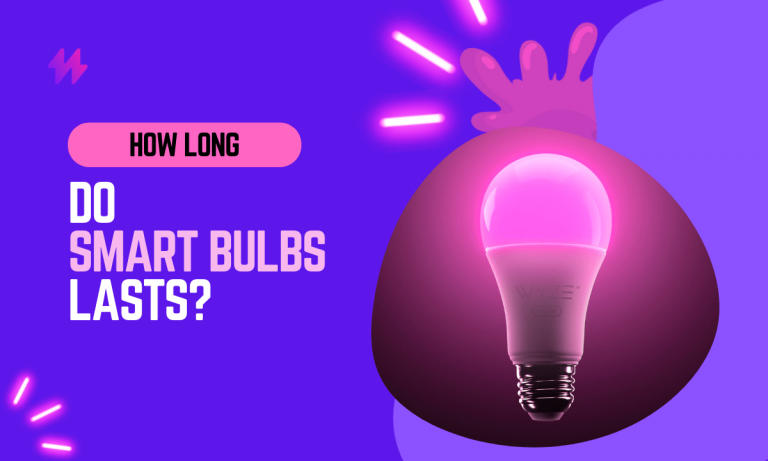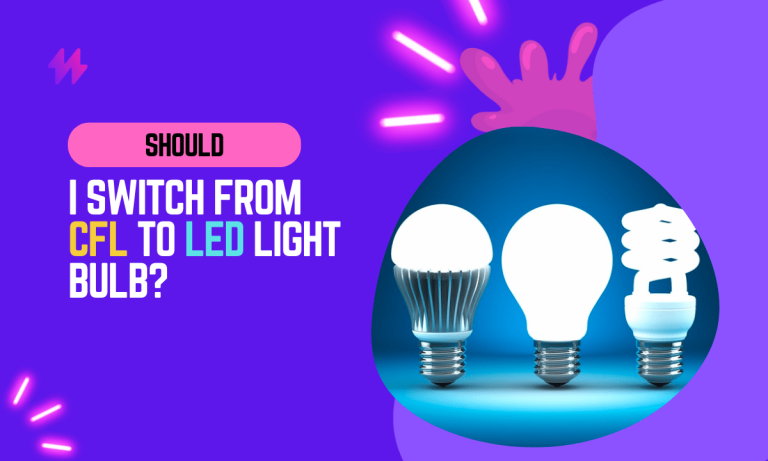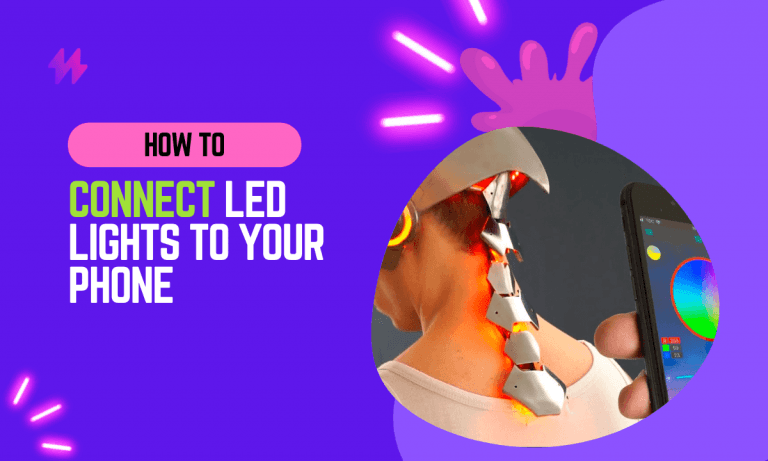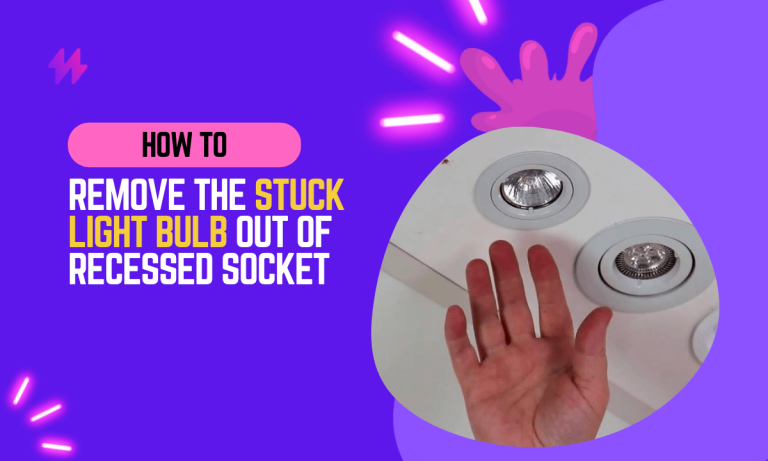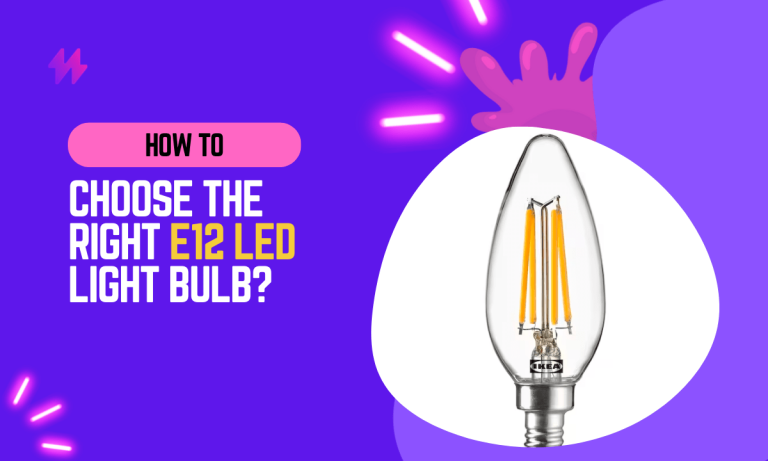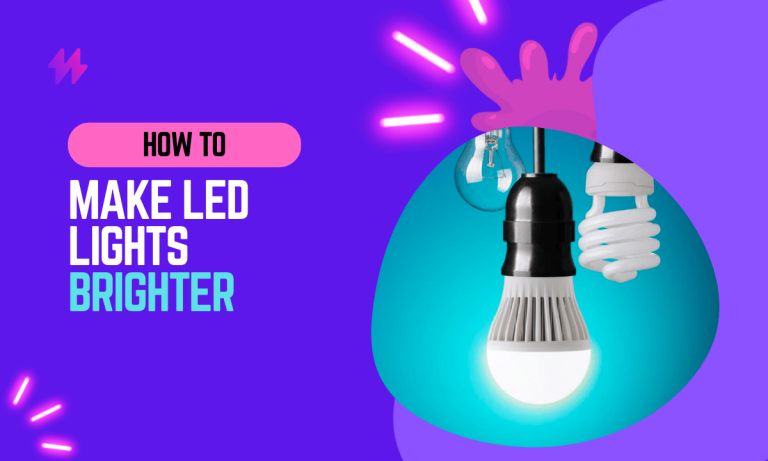Do Smart Bulbs Work Without WiFi?
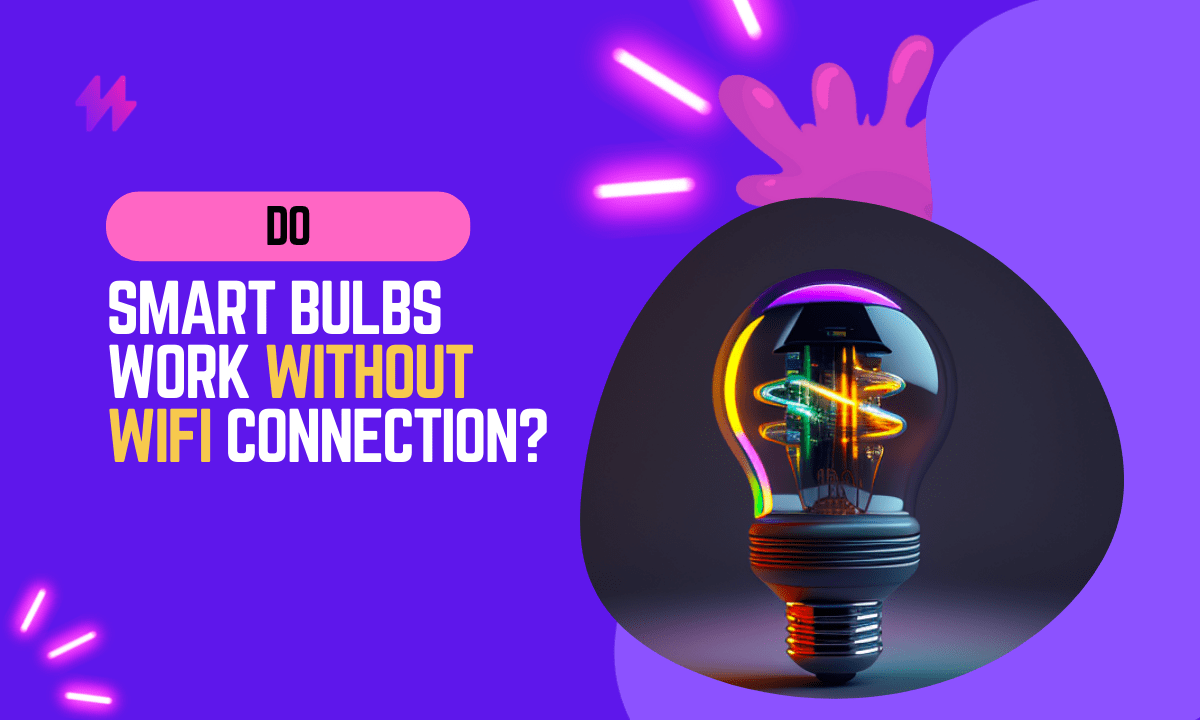
Smart bulbs have become a popular choice for home lighting due to their convenience and versatility. These bulbs can be controlled and configured through a smartphone app or voice assistants, allowing you to easily change their color, and brightness, and even schedule them to turn on or off at certain times.
However, many people are wondering whether smart bulbs work without WiFi. In this blog, we will delve into the different types of smart bulbs available and how they function without WiFi.
Can Smart Bulbs Work without WiFi?
Yes, it is possible to use smart bulbs without a WiFi connection. There are several types of smart bulbs that do not rely on WiFi to function, including Bluetooth, Zigbee, and Z-Wave bulbs. These bulbs use alternative wireless communication protocols to connect to other devices in your home and can be controlled through a smartphone app or voice assistant.
However, the functionality of smart bulbs without WiFi may be limited compared to WiFi bulbs. They may not have as many customization options or be able to connect to as many smart home devices.
Must read guide: What is an E26 Bulb and How do they look?
Types of Smart Bulbs

There are several types of smart bulbs available in the market, each with its own unique features and capabilities. Here are the most common types:
WiFi Smart Bulbs: These are the most common type of smart LED bulbs and they rely on a WiFi connection to function. They can be controlled through a smartphone app or voice assistants like Google Assistant or Amazon Alexa.
Bluetooth Smart Bulbs: These bulbs do not require a WiFi connection and can be controlled through a smartphone app or voice assistant using a Bluetooth connection. They have a shorter range than WiFi bulbs and can only be controlled within close proximity.
Zigbee Smart Bulbs: These bulbs also do not require a WiFi connection and use a low-power wireless communication protocol called Zigbee to connect to other devices in your home. They can be controlled through a smartphone app or voice assistant and have a longer range than Bluetooth bulbs.
Z-Wave Smart Bulbs: Similar to Zigbee bulbs, these bulbs use a different wireless communication protocol called Z-Wave to connect to other devices in your home. They can also be controlled through a smartphone app or voice assistant and have a longer range than Bluetooth bulbs.
Also read: How To Reset Smart Bulb in 4 Easy Steps
How Do Smart Bulbs Work Without WiFi?

As mentioned above, there are several types of smart bulbs that do not require a WiFi connection to function. These bulbs use either a Bluetooth, Zigbee, or Z-Wave connection to communicate with other devices in your home.
Bluetooth Smart Bulbs
Bluetooth smart bulbs are the simplest type of smart bulbs and are the easiest to set up. They can be controlled through a smartphone app or voice assistant using a Bluetooth connection. The range of these bulbs is limited to about 30 feet, so they can only be controlled within close proximity.
Zigbee Smart Bulbs
Zigbee smart bulbs use a low-power wireless communication protocol called Zigbee to connect to other devices in your home. They can be controlled through a smartphone app or voice assistant and have a longer range than Bluetooth bulbs.
To set up Zigbee bulbs, you will need a Zigbee hub, which acts as a bridge between the bulbs and your home network. The hub can be connected to your router through an Ethernet cable and will allow you to control the bulbs through a smartphone app or voice assistant.
Z-Wave Smart Bulbs
Z-Wave smart bulbs are similar to Zigbee bulbs and use a different wireless communication protocol called Z-Wave to connect to other devices in your home. They can also be controlled through a smartphone app or voice assistant and have a longer range than Bluetooth bulbs.
To set up Z-Wave bulbs, you will need a Z-Wave hub, which acts as a bridge between the bulbs and your home network. The hub can be connected to your router through an Ethernet cable and will allow you to control the bulbs through a smartphone app or voice assistant.
Must read: Do Smart Bulbs Use Electricity When Off
Pros and Cons of Smart Bulbs Without WiFi
There are pros and cons to using smart bulbs that do not require a WiFi connection. Here are some of the main benefits and drawbacks:
Pros:
No need for a WiFi connection: One of the main benefits of using smart bulbs that do not require a WiFi connection is that they can still function even if your WiFi goes down or is not available. This can be particularly useful if you live in an area with a weak or unstable WiFi signal.
Easy setup: Setting up smart bulbs that do not require a WiFi connection is generally easier than WiFi bulbs, as you don’t have to worry about connecting them to your home network. All you need to do is install the bulb and pair it with your smartphone or voice assistant using Bluetooth, Zigbee, or Z-Wave.
Longer range: Smart bulbs that use Zigbee or Z-Wave have a longer range than Bluetooth bulbs, meaning you can control them from further away. This can be particularly useful if you have a large home or if you want to control the bulbs from multiple rooms.
Cons:
Limited control: Smart bulbs that do not require a WiFi connection are generally less feature-rich than WiFi bulbs. They may not have as many customization options or be able to connect to as many smart home devices.
Dependency on the hub: If you are using Zigbee or Z-Wave bulbs, you will need a hub to connect them to your home network. This can be an additional cost and may require some technical know-how to set up.
Limited voice control: Smart bulbs that do not require a WiFi connection may not be compatible with as many voice assistants as WiFi bulbs. For example, you may not be able to control them with Amazon Alexa or Google Assistant unless you have a compatible hub.
Conclusion
In conclusion, the functionality of smart bulbs without WiFi depends significantly on the design and capabilities of the specific bulb. Most smart bulbs are equipped with features that require an internet connection to fully utilize their capabilities, such as remote control via smartphone apps, voice command compatibility, and integration with home automation systems. However, many smart bulbs can still operate without a WiFi connection, albeit with limited functionality. For instance, without WiFi, users may not be able to adjust the settings or control the bulb remotely, but they can still use the basic features like turning the lights on or off through traditional means such as a physical switch or, in some cases, via Bluetooth connectivity.
Furthermore, the dependence on WiFi highlights the need for consumers to consider their specific needs and the infrastructure of their homes before investing in smart lighting solutions. For those living in areas with unreliable internet service or for those who prefer not to depend entirely on digital controls, choosing smart bulbs that offer both WiFi and alternative control options like Bluetooth can provide a practical compromise. It allows for the convenience of advanced features when the internet is available, while still maintaining basic control during outages. As technology continues to evolve, the market is seeing an increase in smart lighting products designed to offer greater flexibility and independence from constant internet connectivity. This adaptability makes smart bulbs an increasingly attractive option for a broad range of consumers, enhancing the accessibility and appeal of home automation technologies.
Smart bulbs do work without WiFi, but the functionality may be limited compared to WiFi bulbs. If you are looking for a simple and convenient way to control your home lighting, Bluetooth smart bulbs may be the best option. Ultimately, the type of smart bulb that is right for you will depend on your specific needs and preferences.

